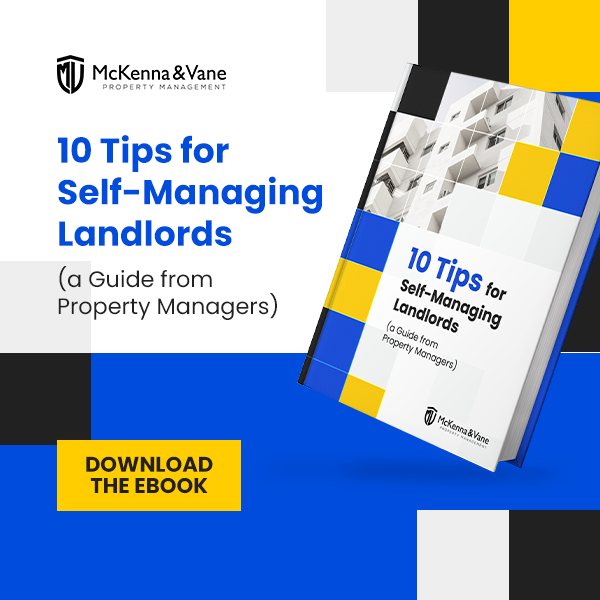Becoming a DIY Landlord? 8 Mistakes to Avoid

If you opt to be a DIY landlord, there are certain pitfalls you need to avoid. You want to avoid costly mistakes and stress from lawsuits or dealing with time-consuming evictions.
Review these common mistakes DIY landlords often commit:
1. Failing to have a written lease or rental agreement
Rental agreements serve to protect the interest of the landlords and set the terms and conditions properly. Foregoing a written leasing agreement can lead to potential issues when problems crop up.
If you don’t have an on-hand lease for reference, it’s also hard to be firm with the property policies and ensure tenants follow them. It’s best to hire a property manager to help you craft a solid leasing agreement.
2. Refraining from performing property inspections
As the property owner, state laws assign the responsibility of making a rental habitable to you. To comply with this duty, you need to be diligent with maintaining your property.
Inspecting your property often helps you in your rental upkeep. The whole job of ensuring your rental is in great condition isn’t all up to you, however. Renters must also do reasonable maintenance.
The more attention you pay to your rental space through property walkthroughs, the happier your tenants are and the likelier they’ll stay and become long-term residents. Make sure to adhere to state and local health and safety standards as well to keep your renters secure.
3. Handling vacancies
As a property owner, there may be times when your rental unit doesn’t have renters. This is an acceptable fact but it’s also costly to have a rental sitting empty for weeks. You still need to spend on maintenance and repair. Plus, it takes time and effort to prepare your unit to be rent-ready.
.jpg)
It’s best to have a budget allocated for vacancies so you can smoothly market and find the best renters. If your funds are limited, you might get tempted to lower your standards and skip tenant screening which can adversely affect you in the future.
4. Postponing evictions and other legal decisions
Since DIY landlords can build a closer relationship with their tenants, they may end up being more lenient with property policies. For example, they might accept late payments and won’t charge late fees if a renter is struggling, But renters can take advantage at times and won’t pay on time out of habit.
By hiring a professional representative such as a property management company, there are boundaries created leading to rental terms being enforced. This leads to prompt rental payments since tenants comply with the leasing agreement.
As a property owner, you need to instill in your renters that the payment dues must be respected since this affects your rental returns.
It can end up as a bad habit for renters to keep paying late if you don’t put a stop to it. It also makes planning for property upgrades challenging. If an eviction is needed then proceed with it but make sure that you follow the legal process. You can also engage the services of a property manager to reduce your stress in facing situations like this.
5. Not being aware of the market
Some DIY landlords just depend on the current rental fees on the properties around them or refer to active property listings. This can be useful, but your research needs to extend further to assign an accurate rental price. Evaluate the rental fees of active and rented listings before advertising your rental home.

Detach emotion when setting rental increases each year. Some property owners can stress about raising the rent even if there are additional taxes, repairs, and insurance to pay. You can increase the rent by as little as 5% and send a notice to your renters early so they can be prepared.
6. Failing to conduct credit and background checks
Another typical mistake DIY landlords do is failing to research the renters’ background fully before welcoming them into their properties. A credit and background check serves to ensure that your occupant will be responsible.
If you hire an excellent property manager, this is easily managed since they’re aware of what to assess and know the important details when it comes to credit and background checks. Employment needs verification and you can ask the renter to submit pay stubs and contact references such as former landlords to get more vital information.
7. Ignoring the value of time
If you’re juggling additional responsibilities, you don’t want to turn your rental business into a full-time job. It requires a lot of attention and making mistakes can cost a lot. How much is your time worth?
If your time is consumed by doing property repairs or looking for trusted vendors, it’s advisable to engage the services of a professional property management company to oversee property maintenance and serve your renters.

When vacancies occur, you also need to get the property ready for the next batch of occupants. This can also take plenty of effort. Though you skip management fees when you handle property management tasks on your own, it can also lead to little personal time. That’s why it pays to measure what self-management costs in relation to your time.
8. Not considering the learning curve
While being a DIY landlord increases your management skills and knowledge, it takes considerable time. You may find that your time is eaten up and your resources are still limited.
Partnering with a full-time property management company can be advantageous since you have front-row seat to the best management practices and solid systems that can lead to a successful rental home.
You’re also protected from lawsuits since property managers have the local expertise and ample knowledge of landlord-tenant laws. They also provide the best advice on what to do when you run into complex property issues.
Bottom Line
Reaching out to a trusted property manager like McKenna & Vane Property Management can be beneficial for you. Aside from providing excellent services from marketing, tenant screening, rent collection, and property maintenance, they also help you reach your financial goals by maximizing your rental income.
